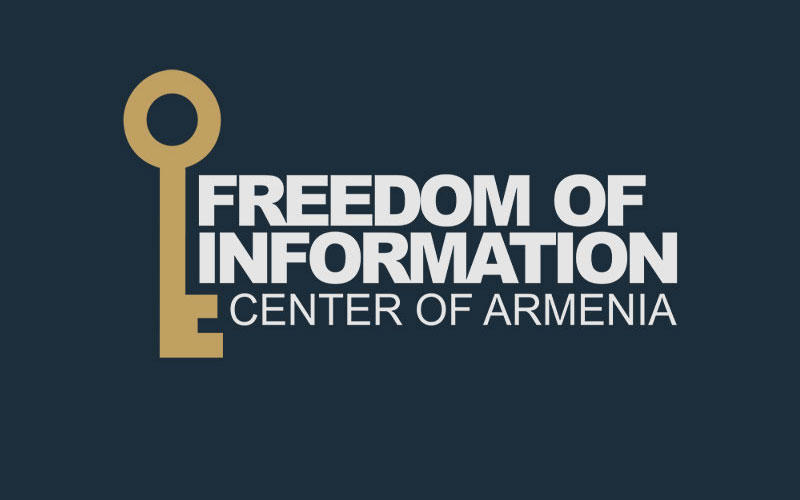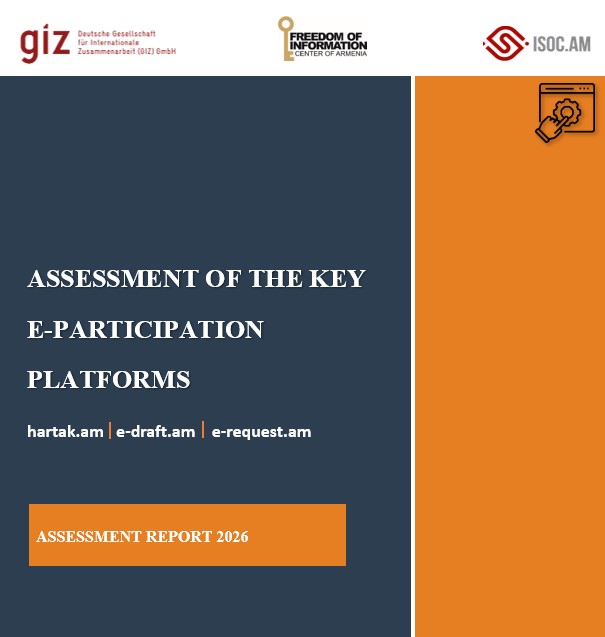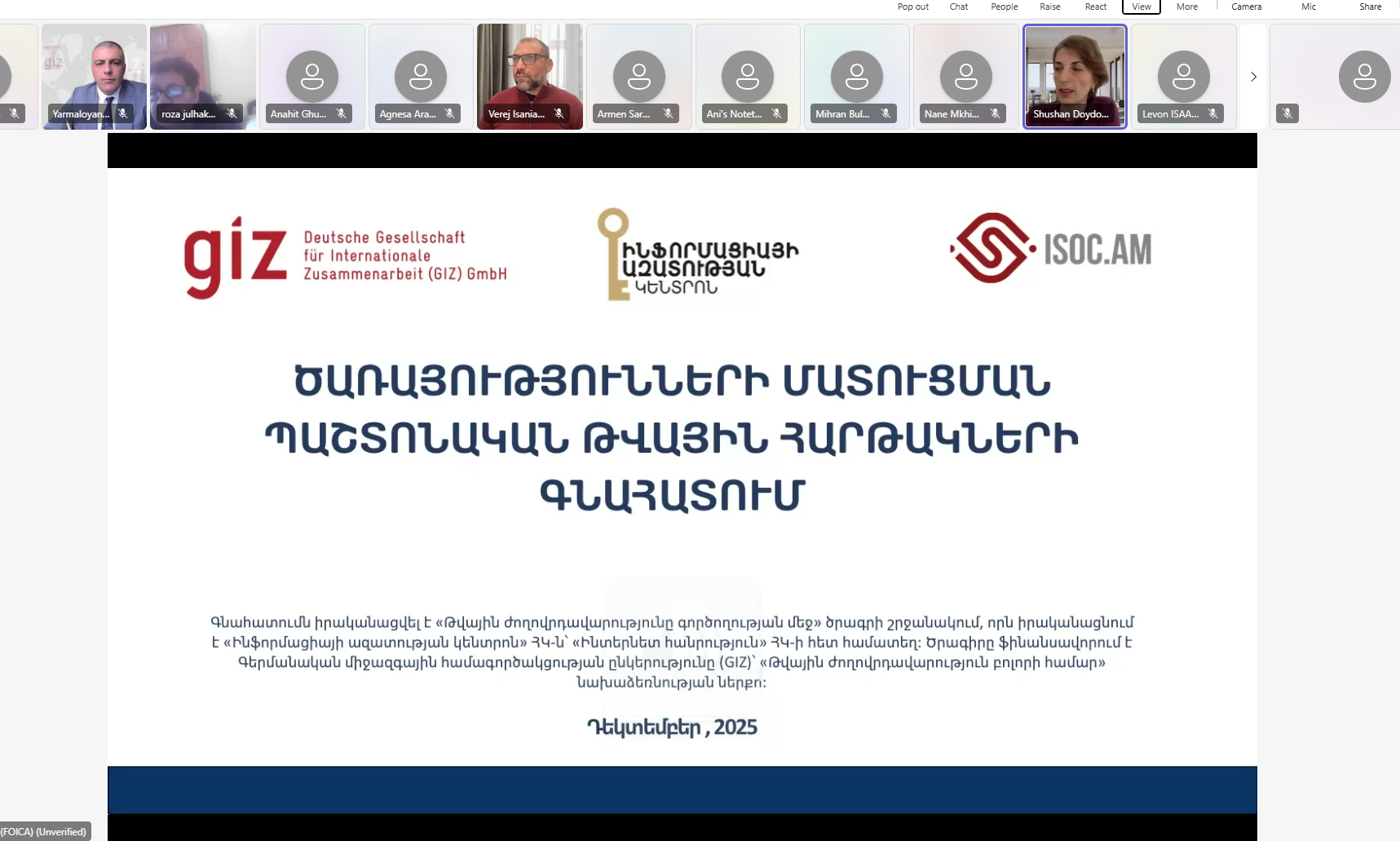On 23 September 2003 Armenia adopted a comprehensive Freedom of Information law. However, until today the implementation of the FOI law continues to pose a significant challenge for national and local authorities as well as for Armenian society at large.
One of the main reasons for current situation is that information holders in governmental structures do not provide information because they are not sufficiently aware of their duties under the law and do not possess the knowledge and skills to implement the law. To bridge this gap, trainings on how to apply the FOI law are necessary for information officers in governmental structures. All fields of government policy need competent information officers, so training courses can serve a group of people working in many different policy domains. However, it is believed that transparency is particularly difficult to achieve in military, police and security agencies in Armenia in light of its current difficult geo-political situation. But they need to operate by the universal democratic principles of transparency, accountability and the rule of law. Therefore it is envisaged to conduct a special pilot training course for the public relations officers representing those agencies.
Meanwhile, before conducting systematized trainings for officials, there is a need to assess needs and expectations of officials in terms of FOI trainings. The objective of this project is to assess the level of knowledge of state officials, central and regional, on FOI legislation and the current situation in terms of its implementation practice, with a view of devising a unified access to information training curriculum for civil servants and information officers representing police, military and defense agencies.
Purpose and Methodology of the Research
The primary purpose of this Needs Assessment Report is to determine the level of the knowledge of public officials on FOI legislation and their obligations under the FOI Law, their expectations from FOI training and whether or not they see a need to increase their knowledge on FOI legislation and improve its application mechanisms.
For this purpose, 104 officials representing 45 government agencies covering the central level and all 10 regions of Armenia and information officers from the police, military and defense agencies have been interviewed. Based on these in-depth face to face interviews with key actors, the working group compiled the following Assessment Report with qualitative and quantitative data on the interviews and made recommendations as to how the gaps in the information officers’ FOI knowledge can be filled and implementation mechanisms can be improved. This will set the ground for the development of a unified training curriculum for civil servants and information officers representing police, defense, and military agencies.
Before conducting the interview phase, the structures of the government agencies, as well as charts, functions and government systems were studied for identifying target groups; those officials who are potentially responsible for providing information were identified.
The studies and interviews were conducted and the Needs Assessment Report was compiled by the Freedom of Information Center of Armenia (FOICA) and the Civil Service Council (CSC) of the Republic of Armenia.
Profile of the Interviewed Officials
In total 104 officials have been interviewed. The overall picture of the respondents is:
– 66% represent Heads of Public Relations Departments of the respective bodies;
– 21% represent press secretaries;
– 10% Chiefs of staff;
– 3% advisors, assistants.
The respondents represent 45 state bodies out of which 41 are covered by the State Council of Civil Service, and 4 represent the General Prosecutors Office, Police, National Security Service and Ministry of Defense (the complete list of agencies covered in this Report is presented in Appendix I).
62 percent of the interviewed officials (or 64 persons) are women and 38 percent (or 40 persons) are men. Officials dealing with PR and information issues within department are mostly women, while Heads of institutions who are main decision makers happen to be men.
Its noteworthy that both in Yerevan and in the region-based state agencies the officials above the age of 40 constitute a majority, and their number amounts to 53 percent (or 55 persons), 44 percent (46 persons) of the officials belong to the age group of 25-40 and only 3 persons or 3 percent are of 18-24 of age.
70 persons represent central government, 22 persons come from regional state government, 12 persons represent various regulatory commissions and Yerevan municipality.
Among interviewed stakeholders 71 officials, or 68 percent, have the duty for providing information,17 percent (or 18 persons) do not have such responsibility, and 15 persons, or 15 percent are not sure, or simply do not know whether information provision is included in their duties or not. You can find the whole report here.









